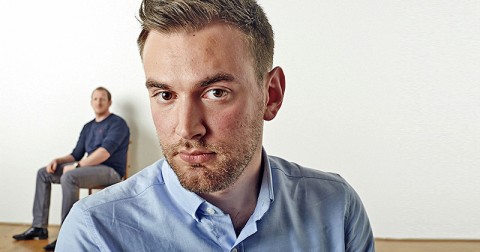
The conversation between Jonny, Neil, and Phil is about how we can bring to bear the latest science on the problems faced by people with serious mental illness, in an effort to render their experiences more understandable and their suffering more manageable.
Co-sponsored by: Yale New Haven Hospital Behavioral Health & Emergency Services, Yale Program for Recovery and Community Health, Connecticut Mental Health Center Foundation, Department of Psychiatry, Yale School of Medicine and Yale Health.
To watch a video of this talk, please click on this YouTube link: http://bit.ly/2zAm5gs
About Jonny Benjamin, Neil Laybourn, and Phil Corlett
Jonny Benjamin is an award-winning mental health campaigner, film producer, public speaker, writer and vlogger from London. In the Queen’s 2017 New Year Honors List, Jonny was awarded an MBE for his services to mental health and suicide prevention.
At the age of 20 he was diagnosed with schizoaffective disorder, a combination of schizophrenia and bipolar, and later began making films on YouTube about the condition that have since been watched by hundreds of thousands of people.
Neil Laybourn is the Founder of This Can Happen 2018 and is a mental health campaigner. Together with Jonny, Neil gives talks and presents on the topic of mental health to groups and organisations all around the UK and internationally.
Phil Corlett is a British neuroscientist and psychologist at Yale University. Jonny and he connected through their shared interests in hallucinations and delusions. Phil’s work shows that these sometimes frightening and unusual experiences needn’t be distressing and are not so unusual. Indeed, Phil’s work suggests that odd beliefs and experiences may arise because of our brain’s believing and perceiving mechanisms. The short cuts that our brain uses to deal with the vast amount of information that is incident upon us render what we perceive and what we believe rather more similar to hallucinations and delusions than we have previously appreciated. We see and hear what we expect, and we would rather change the world around us than relinquish our cherished beliefs. This continuum between health and illness should reduce the stigma associated with psychotic experiences, but it should not detract from their impact on sufferers and their families.